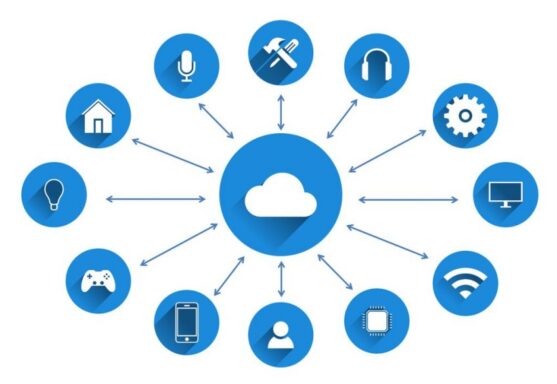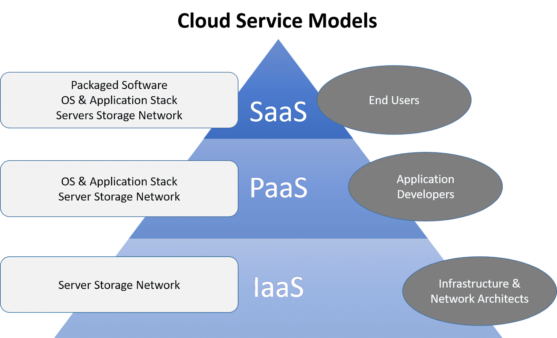What is Cloud Computing Technology?
Interested in knowing about cloud computing technology?
In this article, we will discuss what is cloud computing technology, its benefits, and its challenges in detail. Let's start.
What is cloud computing?

Cloud computing involves delivering computing resources over the Internet. The computing resources in question could be of various types, e.g., servers, storage, software, operating systems, networking, databases, etc.
A Cloud provider lets you pay for the resources you use, therefore, you could lower your “Total Cost of Operations” (TCO). This utility computing with a cloud platform model helps businesses to achieve faster product iteration, flexibility vis-à-vis resources, and economies of scale.

Get a complimentary discovery call and a free ballpark estimate for your project
Trusted by 100x of startups and companies like
You can read more about it in “What is cloud computing?”.
Various cloud computing deployment methods
There are various cloud computing deployment methods, and these are as follows:
1. Public cloud
A highly popular delivery model for cloud computing, a public cloud is owned by a 3rd party. A company providing public cloud services manages it completely and delivers computing resources like servers and storage to people/companies.
AWS, Microsoft Azure, etc. are examples of public cloud providers. Consumers of such services use shared hardware, networking, etc. with other people/companies.
Read more about public clouds in “What are public, private, and hybrid clouds?”.
2. Private cloud
A private cloud is a collection of computing resources for one organization only, and there’s no concept of sharing these resources with another entity. An organization might choose to deploy private clouds on its premises, alternatively, a 3rd party provider might host it.
The public cloud deployment of cloud computing resources such as a data center, physical computing resources, virtual machines, etc. helps software developers to focus on application development and not on underlying cloud infrastructure.
3. Hybrid cloud
A hybrid cloud is a cloud computing delivery model that uses both public and private cloud services.
Organizations might use a private cloud for applications with higher security requirements for sensitive data, whereas, they might host an app with lower data security requirements on a public cloud. A hybrid cloud is also known as a community cloud.
Hire expert developers for your next project
1,200 top developers
us since 2016
Different types of cloud computing

You can utilize cloud computing in your organization in different ways, and these typically use a “Pay as you go” model. These flavors of cloud computing are as follows:
1. Infrastructure-as-a-Service (IaaS)
IaaS refers to managed cloud services providers offering computing services like storage, networking, and virtualization. Read more about it in “IaaS vs PaaS vs SaaS enter the eCommerce vernacular: what you need to know, examples & more”. An example is the Amazon Elastic Compute Cloud (EC2).
2. Platform-as-a-Service (PaaS)
Several managed cloud services providers offer storage, networking, operating system, middleware, and runtime environment on the cloud so that you can focus on developing your app. These are PaaS platforms, and you can read more about PaaS cloud service providers in “10 top PaaS providers”.
It’s easy to use databases on PaaS platforms, moreover, you can easily integrate 3rd party APIs with your app. Well-known PaaS platforms offer valuable solutions like DevOps, auto-scaling, etc. AWS Elastic Beanstalk is an example of a PaaS platform.
3. Software-as-a-Service (SaaS)
Many leading providers of software solutions offer their products as SaaS so that their customers can use them over the Internet. Customers don’t need to download any software. A famous example is Gmail.
Pros and cons of cloud computing
There are various advantages of cloud computing, and these are as follows:
- Businesses can reduce their IT infrastructure costs, thanks to cloud computing.
- From a practical standpoint, you can access unlimited storage on the cloud!
- Managed cloud services providers make backup and recovery of data easy for you.
- Software integration is easy with all managed cloud services providers.
- Thanks to cloud computing, you can access your information from anywhere in the world as long as there is an Internet connection.
- All managed cloud services providers make it easy for you to deploy cloud infrastructure.
Every technology has one or more drawbacks, and it’s the same with cloud computing. The disadvantages of cloud computing are as follows:
- You are dependent on your managed cloud services provider to resolve all technical issues at the earliest so that you don’t face disruption in your functioning.
- A 3rd party provider will have access to your sensitive information if you opt for cloud computing, therefore, you must find a reliable managed cloud services provider.
- Cyber-attackers frequently target cloud computing infrastructure, which heightens your risk if you choose to go with the cloud.
Read more about this in “Pros and cons of cloud computing”.
Planning to Invest in Cloud Computing Technology?
The global cloud computing market is expected to reach 947.3 billion US dollars by 2026.
Hire expert developers for your next project
The use cases of cloud computing services range from audio and video streaming, business data analysis, data storage, backup, and recovery, to embedded intelligence services, development of cloud-native applications, etc.
Are you, as a business CEO or CTO, planning to invest in a cloud computing model for your business? You are making a lucrative decision given the benefits cloud services add to the streamlining and efficiency of business operations.
To employ a cloud computing system for your business processes, you will need the help of qualified cloud computing engineers that have extensive knowledge of cloud development, testing, and deployment using the right tools and technologies.
If you do not find such talent in your team or locally, we would advise you to partner with a reputed software development company.
DevTeam.Space can help you here with its field-expert software development community. Write to us your initial cloud computing requirements via this quick form and one of our technical managers will get back to you to discuss further details.
Frequently Asked Questions
Cloud migration offers numerous benefits to businesses like faster innovation, flexible resources, etc. The benefits of cloud computing help businesses to pay for only those cloud resources such as computing power, that they are currently using. As the business grows, it can scale its resources accordingly.
There are three types of cloud technology, platform as a service. software as a service, and infrastructure as a service.
The numerous uses of cloud service are cloud storage of data, data backup, and recovery, development, and testing of native cloud applications using cloud computing software, intelligent models to understand customers and provide valuable data insights using artificial intelligence, etc.


